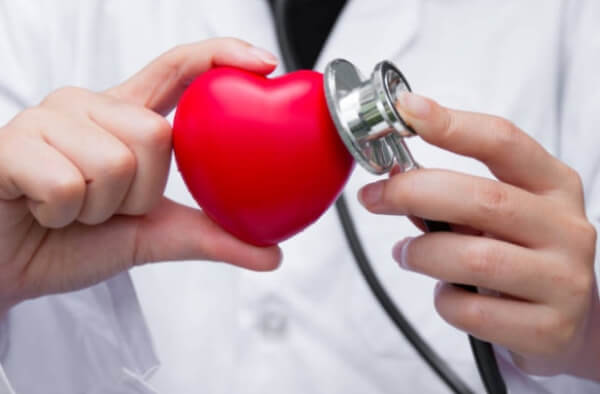
The foods that manage hypertension are the subject of a lot of research. Whether you start at historical practices discovered by our predecessors and the foods that they consumed to manage high blood pressure. Or focus on a regional-specific diet of foods that tend to benefit the cardiovascular system there is a lot to consider. There is no doubt that there is a relationship between the food we eat and its effect on our health.
Choosing which foods to eat to manage hypertension however is complicated due to a number of myths. All the above-mentioned starting points to a real scientific investigation need to be investigated and potentially debunked. In this article, we have compiled a comprehensive list of foods that support the cardiovascular system and decrease the chances of developing high blood pressure. The list of foods is not full and final – there are other examples that can be added but we focused on the ones that are accessible and proven to be effective.
Causes For Stress and How To Manage it?
Most of us know the side effects of stress very well. Beginning with an elevated heartbeat, it can make your cheeks go red. Straight until going berserk. Of course, nervous anxiety is not the only reason why we develop chronic hypertension. But it can be a good agent for triggering blood pressure problems. The American Heart Foundation’s official website offers helpful tips on managing psychological strain to boost heart health.
Have you thought about your diet plan recently? Science has proven that cardiovascular problems and bad eating habits go hand in hand. You should re-invent your nutritional regimen and make sure that you are getting enough heart-friendly nutrients. Omega-3 fatty acids are of utmost importance, as the body cannot produce them organically. They will also help you get in shape quickly – most cardio-healthy products are natural fat burners. Remember, obesity also plays a leading role in the development of hypertension.
If you are in need of a helping hand to tackle the symptoms of high blood pressure, then search no further. The market offers lots of all-natural products to relieve stress and normalize the heart rate. One of the preferred by customers’ cardiovascular solutions is the Neoritm capsules for a calmer and happier heart.
What is hypertension? How to recognize its initial symptoms? Which foods help us harmonize and stabilize the heart rate? What should I avoid eating? Are dietary changes necessary if you have high blood pressure?
Learn the top 5 foods that manage hypertension and support the heart health in the article below!
What Is Hypertension? Is Stress a Contributing Factor?
Being under nervous tension mobilizes the body and keeps it in a state of readiness. This is what we call stress. This mobilization is crucial for survival. This is why we react this way in life-threatening moments. It is the only way to be physically prepared to fight or run – the main instinctive response to impending danger. But it is also characterized by the release of stress hormones – cortisol and adrenaline – in the brain. They make the heart beat faster so that there is more blood in the torso than in the limbs. The construction of blood vessels and the increase in heart rate increase blood pressure until the dangerous situation disappears. Subsequently, blood pressure returns to normal. Experts call this situational stress and its effects are usually short-lived.
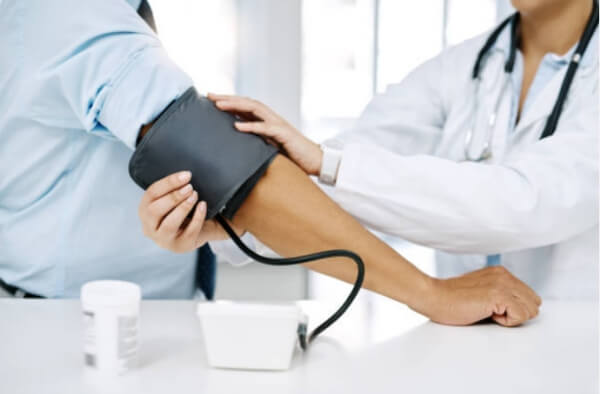
Being under nervous tension mobilizes the body and keeps it in a state of readiness. This is what we call stress. This mobilization is crucial for survival. This is why we react this way in life-threatening moments. It is the only way to be physically prepared to fight or run – the main instinctive response to impending danger. But it is also characterized by the release of stress hormones – cortisol and adrenaline – in the brain. They make the heart beat faster so that there is more blood in the torso than in the limbs. The construction of blood vessels and the increase in heart rate increase blood pressure until the dangerous situation disappears. Subsequently, blood pressure returns to normal. Experts call this situational stress and its effects are usually short-lived. In all other cases, we are talking about hypertension (also called arterial hypertension). This is a chronic condition that should be carefully monitored and treated.
Depending on the course of arterial hypertension, it is divided into:
- Benign Hypertension – Blood pressure values are slightly or moderately elevated, and target organs (brain, heart, kidneys, eyes) are slowly damaged;
- Accelerated Hypertension – It is characterized by a sharp increase in blood pressure and frequent hypertensive crises;
- Pulmonary Hypertension – It happens when the pressure in the blood vessels leading from the heart to the lungs is too high. With pulmonary hypertension, the blood vessels in the lungs develop an increased amount of muscle in their walls;
- Portal Hypertension – this is elevated pressure in the portal venous system. The portal vein is a major vein that leads to the liver. The most common cause of portal hypertension is cirrhosis (scarring) of the liver;
- Malignant Hypertension – In malignant arterial hypertension, blood pressure values are extremely high, for example, 250/140 mmHg. Severe organ damage quickly occurs – retinal hemorrhages, hypertensive encephalopathy, stroke, kidney or heart failure;
- Essential Arterial Hypertension – In primary arterial hypertension, the cause of the increased blood pressure has not been established. 95% of patients with arterial hypertension have essential hypertension;
- Secondary (symptomatic) arterial hypertension – Secondary arterial hypertension is due to another disease, for example:
- Kidney diseases;
- Endocrine diseases;
- Cardiovascular diseases – coarctation of the aorta, aortic insufficiency;
- Diseases of the central nervous system;
- Exogenous causes – prolonged intake of certain medications;
- Hypertension during pregnancy – gestational hypertension, preeclampsia.
Did You Know?
Hypertension is known to be associated with bacterial diarrhea illness causing the hemolytic uremic syndrome, resulting in kidney injury and possible chronic kidney disease. In addition, some medications for high blood pressure can trigger diarrhea as a side effect. This means that if you suffer from diarrhea and have elevated blood pressure but aren’t diagnosed with hypertension you need to immediately see your doctor!
Hypertension – Factors
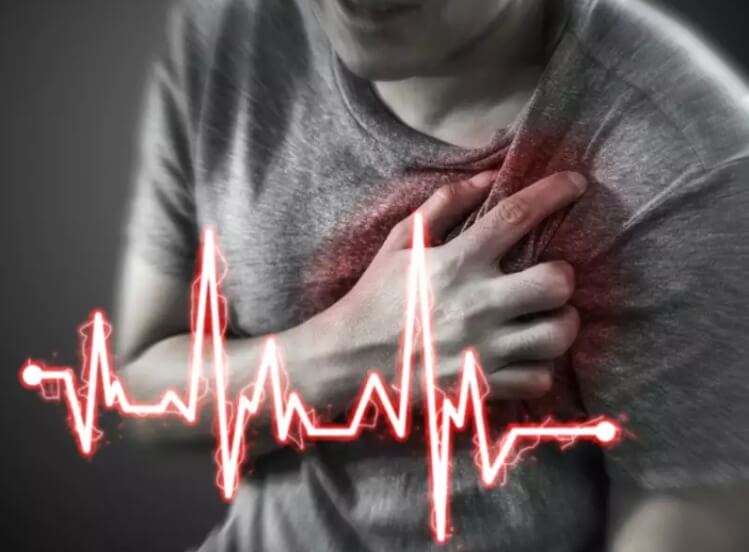
Hypertension is a disease that can be caused by many factors such as chronic stress. On the other hand, for shorter periods of time, stress-induced mobilization is extremely beneficial to humans. It can save your life. But the long retention of the peak stress moments has a strong and detrimental effect on the body. It is one of the leading reasons why we develop chronic hypertension. The feeling of being threatened leads to an increase in pressure in the circulatory system. Often, the number one enemy of human health is over-ambition, anxiety, and the high tension associated with them. There is nothing wrong with aspirations if they do not grow to the point where they endanger the stability of your emotions.
But which other factors contribute to us developing high blood pressure and then hypertension?
A combination of factors typically plays a role in the development of essential hypertension. Some of them are:
- Genetic predisposition to high blood pressure – Some people are genetically predisposed to hypertension. This may be from gene mutations or genetic abnormalities inherited from your parents;
- Age – Individuals over 65 years old are more at risk for hypertension;
- Race – For example, Black non-Hispanic individuals have a higher incidence of hypertension;
- Obesity and a sedentary lifestyle – Living with obesity can lead to a few cardiac issues, including hypertension. In addition, low physical activity has been connected to hypertension too.
Secondary hypertension often occurs quickly and can become more severe than primary hypertension. Several conditions are considered as main secondary hypertension causes. These include but are not limited to:
- Kidney disease;
- Obstructive sleep apnea;
- Congenital heart defects;
- Side effects of medications.
An Interesting Fact
Caffeine may cause a short, but dramatic increase in your blood pressure, even if you don’t have high blood pressure. It’s unclear what causes this spike in blood pressure. The blood pressure response to caffeine differs from person to person. In general, caffeine’s effect on heart rate and blood pressure can often be negative, especially in people who suffer from hypertension.
Foods to Avoid If You Have Hypertension?
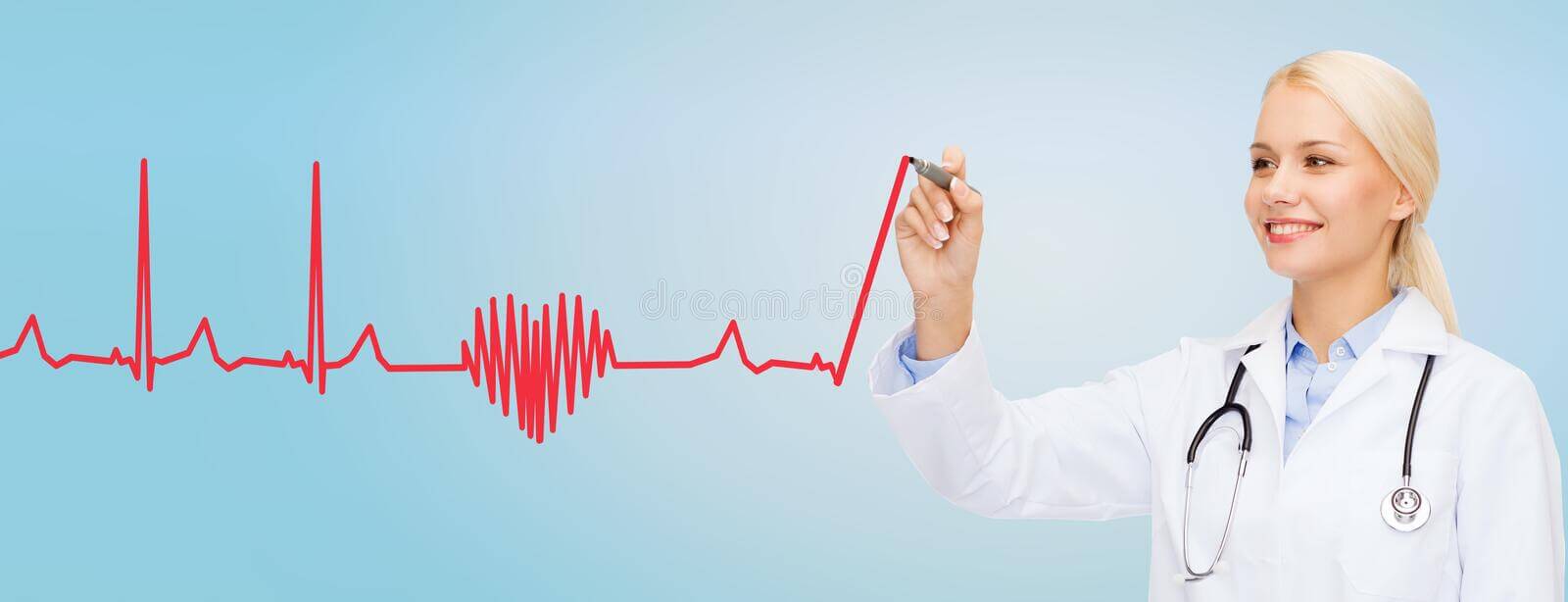
Do you love your heart? And you want to keep your cardiovascular system healthy for years to come? There are many things you can do… and things you can refrain from. Such as food. To have a healthier and happier heart, you should leave certain foods out of your shopping cart and diet. Save them for rarer, ‘special’ occasions and opt for more nutrient-rich natural alternatives.
The negative ranking of foods to avoid if you have hypertension includes:
- All Types of Fast Food;
- Fizzy Drinks;
- Processed & Dry Meats;
- Deep-Fried Products;
- Candy & Sweets;
Let’s learn the 5 top foods against high blood pressure!
Foods to Eat If You Have High Blood Pressure
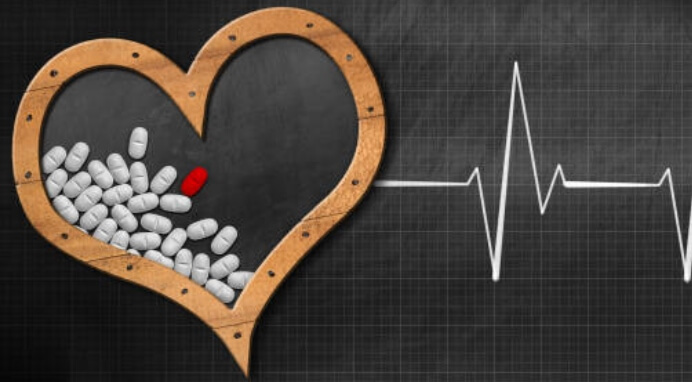
Hypertension, or chronic high blood pressure, is the most common preventable risk factor for heart disease. Over 1 billion people around the world have high blood pressure. Medications, including angiotensin-converting enzyme (ACE) inhibitors, are commonly used to reduce blood pressure levels. However, lifestyle changes, including dietary modifications, can help lower blood pressure levels to optimal ranges and reduce your risk of heart disease. This is why in the paragraphs below we will share with you some valuable information related to the best foods for reducing hypertension. All this is related to following an effective DASH diet. DASH stands for Dietary Approaches to Stop Hypertension. The DASH diet is a healthy-eating plan designed to help treat or prevent high blood pressure (hypertension). This specific nutrition regimen includes foods that are rich in potassium, calcium, and magnesium. These nutrients help control blood pressure. The diet limits foods that are high in sodium, saturated fat, and added sugars.
Studies have shown that the DASH diet can lower blood pressure in as little as two weeks. The diet can also lower low-density lipoprotein (LDL or “bad”) cholesterol levels in the blood. High blood pressure and high LDL cholesterol levels are two major risk factors for heart disease and stroke. Following a nutritious, heart-healthy diet is suggested for all people with high blood pressure, including those on blood-pressure-lowering medications, and also in cases of pulmonary hypertension.
So, some of the most healthy foods for reducing hypertension are:
#1. Fresh Vegetables – Hydrate & Detoxify the Cardiovascular System!
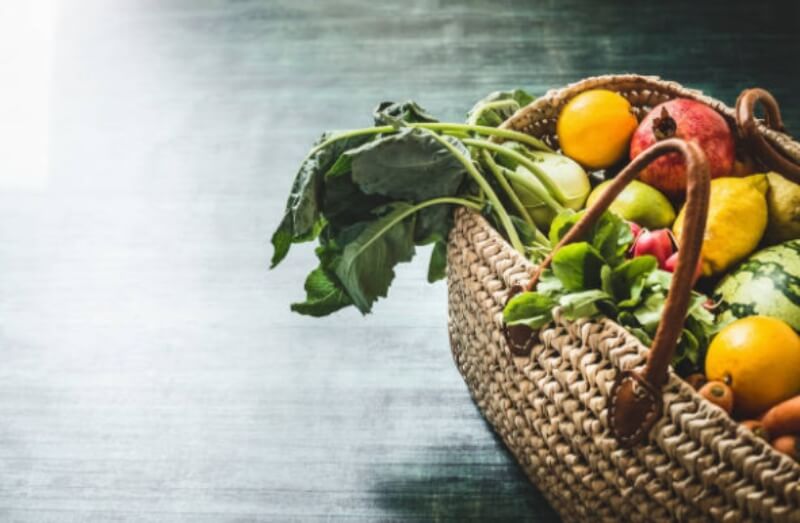
Eating more vegetables is a good way to neuter the symptoms of every disease and boost your overall health. They are rich in antioxidants, fiber, vitamins, and electrolytes, and are low in calories. The ‘Journal of the American Medical Association states that people who eat mostly plants have lower blood pressure than those who eat less fresh produce. It is good to have between four and six meals with a variety of vegetables every day. They should also vary in color to provide a variety of phytochemicals. Green leafy plants, such as spinach, kale, dock, sorrel, and yeast are rich in potassium and are among the most useful foods in the world, as they are low in calories. Combine them with Welltone drops for even better results.
Don’t forget to also include:
- Cabbage;
- Fennel;
- Kale;
- Lettuce;
- Collard greens;
- Beet greens.
#2. Eggs, Poultry, & Fish – Saturate the Heart with Proteins & Omega-3 Fatty Acids!
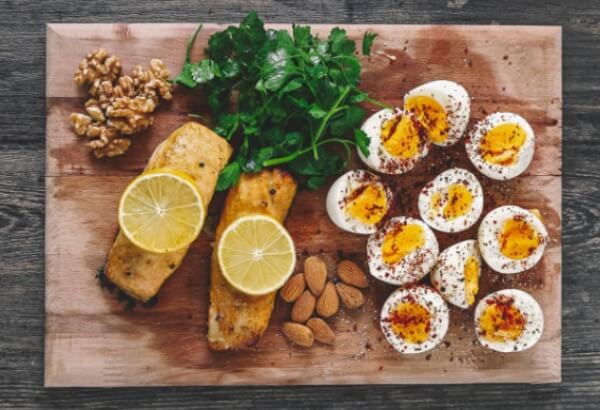
Opt for wild fish rich in Omega-3, such as salmon, sardines, and mackerel. All of them are recommended for people with cardiovascular problems. Eggs and poultry are also good. About 20% to 30% of the daily caloric intake should come from proteins. It balances energy and blood sugar levels, satiety the appetite, and maintains muscle strength. Add to your diet the Cardio Plus supplement and control your health all day long.
#3. Legumes – Excellent for Balancing the Heart Rate & Blood Sugar Levels!
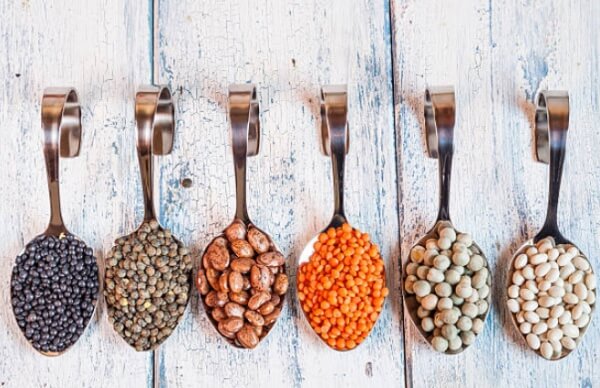
Legumes, lentils, and peas are great sources of fiber, protein, Vitamin B, and antioxidants. They are suitable for people who consume little animal protein, as they are low in calories and salt. Just remember to presoak them in water from the day before, for better absorption and digestion. This helps break down anti-nutrients, which block the absorption of minerals and are difficult for the stomach to process. Eat them several times a week instead of meat. Also, consider taking Kardio Max – a solid bio-prevention for arterial hypertension.
#4. Whole-Grain Products – Supply the Heart with Sufficient Fiber!
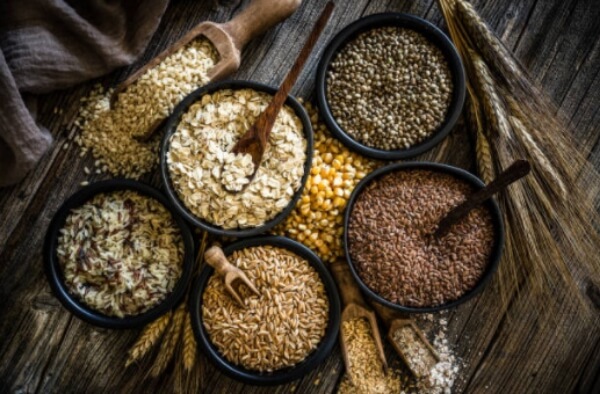
Whole grains are recommended for people on diets that manage high blood pressure because they are a source of fiber and minerals. The said work against the development of chronic hypertension, unlike refined carbohydrates. Examples of healthy whole-grain foods are brown rice, amaranth, quinoa, buckwheat, barley, and millet. To make them even more beneficial for the heart, choose sprouted cereals or presoak the ones you have in water to improve digestion. Hyper Caps is yet another solid and proven bio-complex that can help you maintain your normal blood pressure levels.
#5. Milk & Dairy – Keep the Heart Working Up to Its Full Potential!
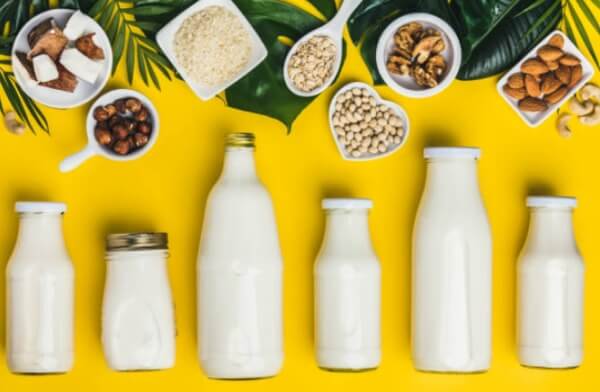
The quality of dairy products is important so go organic. Choose homemade yogurt, cheese, and yellow cheese. Goat’s milk is also recommended. Yogurt and kefir are good sources of calcium, protein, and probiotics. To effectively lower and control high blood pressure levels do more cooking at home to avoid eating processed foods. Limit harmful fats, salt, sugar, and sweetened beverages.
#6. Garlic and Herbs – Provide Your Body with Enough Nitric Oxide
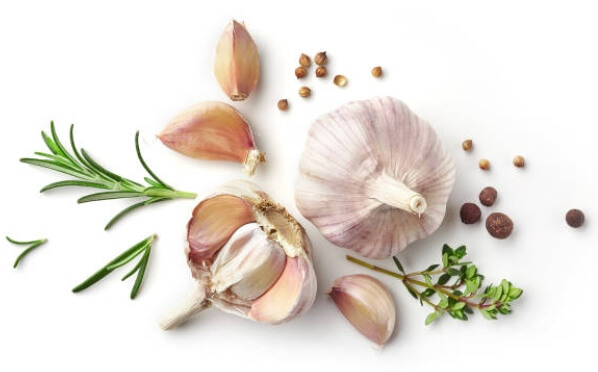
One medical paper notes that garlic can help reduce hypertension by increasing the amount of nitric oxide in the body. Nitric oxide helps promote vasodilation, or the widening of arteries, to reduce blood pressure. Incorporating flavorful herbs and spices into your daily diet can also help you cut back on your salt intake. Examples of herbs and spices you can add include basil, cinnamon, thyme, rosemary, and more. On the other hand, Opticor is an advanced supplement for high blood pressure that is worth consideration too.
#7. Citrus Fruits – Supply Your Cardiovascular System with Multiple Vitamins
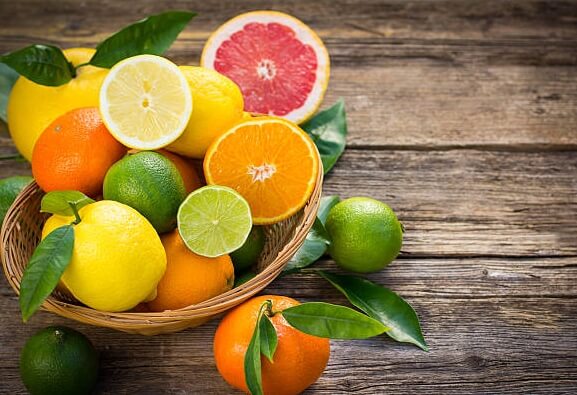
Citrus fruits, including grapefruit, oranges, and lemons, may have powerful blood-pressure-lowering effects. They’re loaded with vitamins, minerals, and plant compounds that may help keep your heart healthy by reducing heart disease risk factors like high blood pressure. Studies have also shown drinking orange and grapefruit juice may help reduce blood pressure. Yet, grapefruit and grapefruit juice can interfere with common blood-pressure-lowering medications, so consult your healthcare provider before adding this fruit to your diet.
In this paragraph, we should also mention pomegranate. This is a healthy fruit that you can enjoy raw or as a juice. Drinking a cup of pomegranate juice once a day for four weeks helps lower blood pressure over the short term. In addition, the juice from this fruit is tasty when consumed with a healthy breakfast. Be sure to check the sugar content in store-bought juices, as the added sugars can negate the health benefits.
Keep the Heart Healthy & Be Happy!
The human heart is a unique organ that works from the moment we are born until the day we die. Do not let it skip a heartbeat. Or beat way more often than the normal. Lower stress and eat healthily. If you need assistance in managing blood pressure levels, try the Cardioton capsules. They are one of 2026’s top products against hypertension.
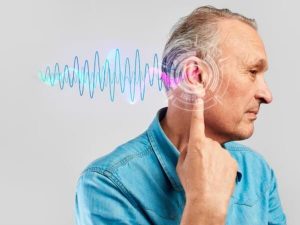
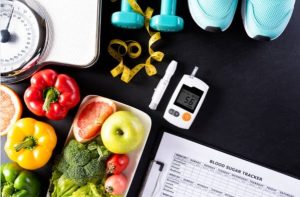
![Full-On Body Care Guide [year] - How to Shower Properly & Choose the Right Cosmetics](https://nature-tricks.com/wp-content/uploads/2021/11/body-care-how-to-shower-properly-5-300x212.jpg)

